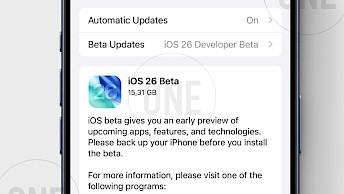Data Protection Redefined: Virtual Data Rooms for Startups

Some quick industry statistics reveal a stunning daily influx of 140,000 new startups. If you're venturing into this entrepreneurial world, it's crystal clear that you'll need to distinguish yourself.
However, preparation is key, especially when it comes to fundraising, which unfolds in various stages. Startups must be well-prepared to maximize their chances of success. While the specifics may differ across industries, one constant is the significance of due diligence.
Typically, due diligence involves potential investors delving into sensitive information like financial records, intellectual property, corporate documents, and financial updates. Clearly, this data is precious to a startup, necessitating robust protection to keep it away from prying eyes and competitors while making it accessible to potential investors.
Enter virtual data rooms tailored for startups, your reliable ally in safeguarding data and showcasing your commitment and viability to prospective investors.
But what exactly is a virtual data room for startups?
Virtual data rooms overview
A virtual data room (VDR), also known as a digital data room, serves as a centralized repository for securely storing sensitive information, accessible either on-premises or through cloud-based solutions. The VDR market is poised for rapid growth due to several key factors:
- Surging demand for secure solutions: There is an ever-increasing demand for robust and secure data storage and sharing solutions.
- Proliferation of start-ups, mergers, and acquisitions: With a significant number of start-ups emerging and a continuous stream of mergers and acquisitions in key emerging markets, VDRs are in high demand.
- Heightened data security concerns: The rise in cyber-attacks has intensified concerns about data security, making secure information sharing imperative.
- Universal need for VDR-like solutions: Businesses of all sizes are recognizing the need for VDR-style solutions, expanding the market further.
As Ronald Hernandez, Founder of dataroom-providers.org puts it, “Virtual Data Rooms find application in various scenarios, including financial transactions, fundraising, Initial Public Offerings (IPOs), handling sensitive data in client engagements, and many other contexts. Our research proves that there are various top-class data room solutions on today’s market, with a confident leader being https://www.idealsvdr.com/”.
While there are indeed many powerful data room solutions to choose from, it is not an easy task for a startup. Below we’ll go through some of the most important comparison and selection criteria.
It's also crucial to consider aspects like operational due diligence, which ensures that your startup's processes and systems are functioning effectively and efficiently. Understanding these elements will provide you with a more holistic approach to securing funding and managing operational risks.
15 criteria to select a data room for a startup
Selecting the right data room software for your startup is a crucial decision, as it involves safeguarding sensitive data and ensuring the smooth operation of your business processes. Here are some steps to help you choose the best VDR for your startup:
- Your needs: Start by understanding your specific requirements. What type of data will you be sharing and storing? How many users will need access? Do you need compliance with specific regulations, like GDPR or HIPAA? Knowing your needs will guide your VDR selection.
- Security features: Data security is paramount. Ensure the VDR provides robust encryption, secure user authentication, and granular access control. Look for certifications such as ISO 27001 or SOC 2 to verify the provider's commitment to security.
- Ease of use: The VDR should be user-friendly for both you and your external partners or investors. A complex interface can lead to inefficiencies and user errors.
- Accessibility and compatibility: Ensure the VDR is accessible across various devices and platforms, including mobile devices and desktop computers. Compatibility with different operating systems is important to ensure seamless collaboration.
- Data management and organization: The VDR should offer efficient data management tools, including version control, indexing, and search capabilities. This will help you keep your documents organized and accessible.
- Customer support: Reliable customer support is essential. Check if the VDR provider offers round-the-clock customer service, and whether they are responsive to your inquiries.
- Pricing and scalability: Consider your budget and the pricing structure of the VDR. Some providers charge based on data storage or user licenses, so make sure the pricing aligns with your needs. Also, look for scalability options in case your startup grows.
- Data backup and recovery: Data loss is a real risk. Ensure the VDR has robust backup and recovery procedures in place to protect your data.
- User permissions and auditing: The ability to control user permissions is crucial. You should be able to specify who can view, edit, and download documents. Additionally, the VDR should provide auditing and tracking features to monitor user activities.
- Trial period: Many VDR providers offer a trial period. Take advantage of this to test the service and ensure it meets your requirements before committing to a long-term contract.
- Reputation and reviews: Research the reputation of the VDR provider and read reviews from other users. This can give you valuable insights into the quality and reliability of the service.
- Compliance and regulations: If your business deals with sensitive data subject to specific regulations (e.g., healthcare or finance), ensure that the VDR is compliant with relevant laws and standards.
- Data room customization: Some VDRs allow you to customize the interface with your branding and logo. This can be important for presenting a professional image to potential investors or partners.
- Integration: Check whether the VDR can integrate with other tools your startup uses, such as project management software or CRM systems.
- Data room providers reputation: Consider the overall reputation and track record of the VDR provider. A well-established and reputable provider is often a safer choice.
By carefully considering these factors and conducting thorough research, you can select data room services that will align with your startup's unique needs and security requirements.
Wrapping up
In conclusion, the world of startups is dynamic and competitive, demanding innovative solutions for securing and sharing sensitive information. Best data rooms offer a robust response to these needs, with their potential for safeguarding data and streamlining critical processes.
The selection of the right virtual data room is pivotal, and by adhering to the outlined criteria, startups can ensure their data is protected and their operations run smoothly.




